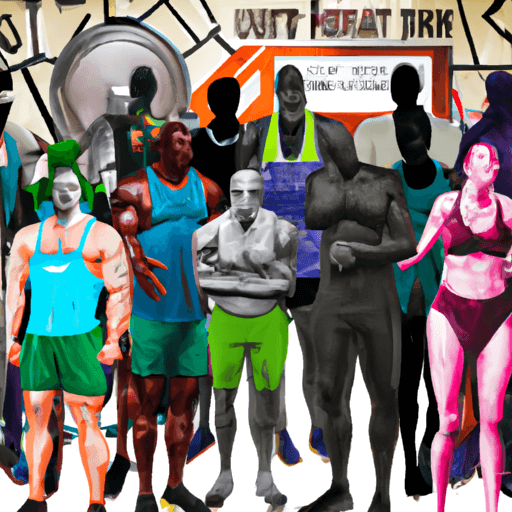Body Shaming within the Fitness Industry: A Call for Change
Introduction
As a space where physical prowess is celebrated, the fitness industry is often seen as a beacon for health and wellness. However, there is a darker side to this realm that often goes unnoticed: the prevalence of body shaming.
Prevalence of Body Shaming
From personal trainers who use 'fat' as a derogatory term, to fitness magazines championing the 'perfect body,' body shaming is rife within the fitness industry. It looms large in changing rooms, on gym floors, and online; social media platforms add a further dimension to this harsh reality, with fitness influencers often promoting unrealistic body standards to their followers.
Anecdotal evidence from gym-goers paints a similarly grim picture. Jane Doe, a 35-year-old fitness enthusiast, shares a distressing experience, I was simply working out on the treadmill, when an instructor told me with a sympathetic smile that I would 'need to lose a significant amount of weight' to attain the 'gym body.' The comment was uncalled for, and it shattered my self-esteem.
Negative Effects
The impact of body shaming extends beyond hurt feelings. It can lead to serious mental health issues such as eating disorders, depression, and anxiety. It discourages newcomers and adversely affects their potential for positive health outcomes. Moreover, it propagates a harmful narrative that fitness equates with thinness, not health.
Standing Up against Body Shaming
Combating body shaming in the fitness industry involves challenging entrenched societal norms and expectations. It requires the industry as a whole to promote body positivity and to condemn any form of shaming. Body positivity - acceptance of all body types - needs to become a cornerstone of the fitness world. Jason Smith, a personal trainer from New York, is already fostering this change. In my classes, I create an environment where everyone feels accepted, where the focus is on improving overall health and wellness, not on weight loss, Smith shares.
Promoting Healthy Body Ideals
By advocating for body positivity, the fitness industry needs to simultaneously promote healthy, realistic body ideals. It is essential to remember that the pursuit of fitness is about enhancing health and well-being and not about attaining a 'perfect' physique. It involves having a diverse representation of bodies in fitness media and advertising and focusing on individualized fitness goals rather than standard benchmarks.
Conclusion
The journey towards inclusivity in the fitness industry is a lengthy one. Still, it starts with questioning the culture that fosters body shaming and recognizing the negative effects it has on individuals. Each person involved in this industry, from personal trainers to fitness influencers and enthusiasts, has the power to inspire change through their attitudes and practices. Let's embrace the spirit of fitness: empowerment, wellness, and self-improvement, irrespective of body size.




















Comments
Leave a Comment